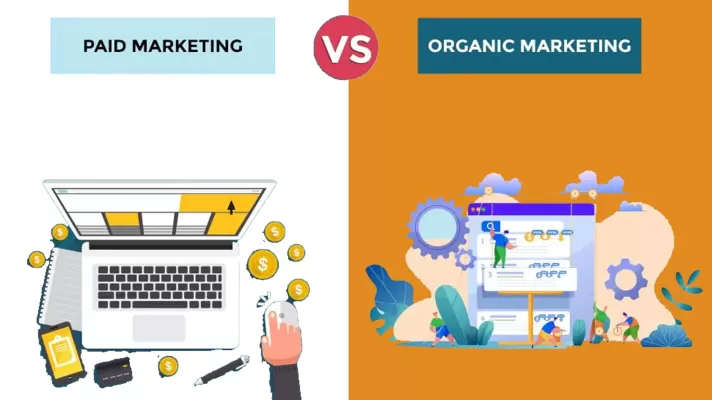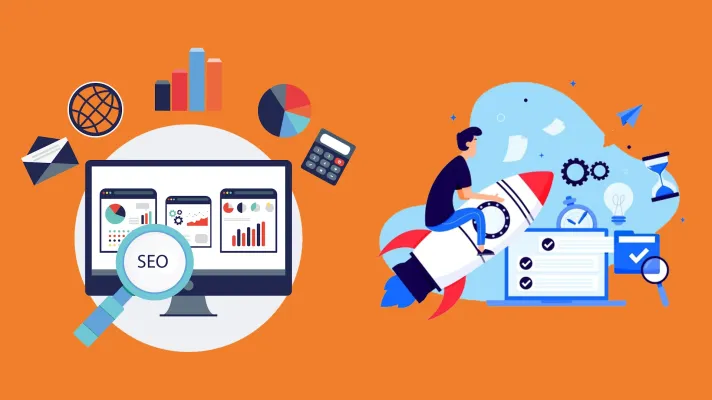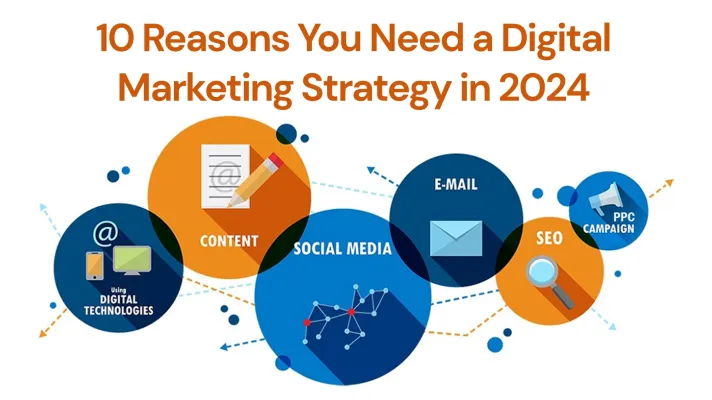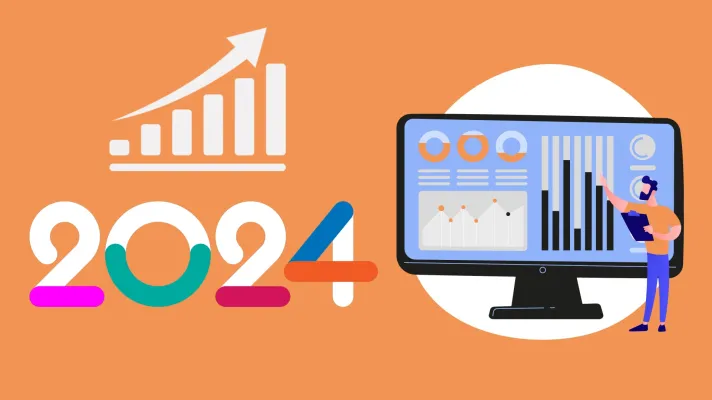
In the world of business, marketing plays a crucial role in reaching and engaging with target audiences. With the evolution of digital marketing, businesses have various strategies at their disposal.
1. Introduction
In the world of business, marketing plays a crucial role in reaching and engaging with target audiences. With the evolution of digital marketing, businesses have various strategies at their disposal. Two prominent methods are organic marketing and paid marketing.Each technique has advantages and disadvantages, and selecting the best one for your company requires careful analysis. In this post, we’ll look at the qualities, benefits, and drawbacks of both organic and paid marketing to help you make an informed selection for your company.
2. Understanding Organic Marketing
2.1 Definition and Principles
Organic marketing is the practice of naturally attracting and interacting with an audience without direct monetary commitment. It emphasises on producing valuable, interesting, and relevant material for the intended audience. Search engine optimisation (SEO), content marketing, social media involvement, and word-of-mouth referrals are the mainstays of organic marketing.
2.2 Benefits of Organic Marketing
Cost-Effective:
Organic marketing is cost-effective because it does not involve a direct financial input, making it an appealing alternative for businesses with limited resources.
Long-Term Results:
By constantly providing high-quality content, organisations may establish their online presence and authority, resulting in long-term advantages.
Builds Trust and Credibility:
Organic marketing focuses on offering value to the audience, which can aid in the brand’s trust and credibility.
Sustainable Growth:
As organic marketing focuses on audience engagement and relationship-building, it often leads to sustainable growth and loyal customer base.
2.3 Limitations of Organic Marketing
Time-Intensive:
Building an organic marketing presence requires time and consistent effort to create valuable content, optimize for search engines, and engage with the audience.
Delayed Results:
Unlike paid marketing, organic marketing may take time to generate significant results, especially for newer businesses or industries with high competition.
Reliance on Algorithm Changes:
Organic marketing strategies can be influenced by search engine algorithm updates, requiring adaptability and ongoing optimization efforts.
3. Exploring Paid Marketing
3.1 Definition and Mechanisms
Paid marketing, often known as paid advertising, entails spending money to promote products or services. It comprises search engine advertising (Google Ads), social media advertising (Facebook Ads), display advertising, influencer collaborations, and other channels. Paid marketing allows businesses to reach a wider audience quickly and target specific demographics.
3.2 Advantages of Paid Marketing
Immediate Results:
Paid marketing campaigns can generate quick results by leveraging targeted advertising platforms, allowing businesses to reach their desired audience promptly.
Precise Targeting
With paid marketing, businesses can define their target audience based on demographics, interests, and behaviors, ensuring their ads reach the right people.
Enhanced Visibility
Paid marketing can help businesses achieve prominent positions in search engine results and social media feeds, increasing brand visibility and awareness.
Measurable ROI
Paid marketing platforms provide analytics and tracking tools to measure the return on investment (ROI) of campaigns, enabling businesses to optimize their strategies.
3.3 Drawbacks of Paid Marketing
Costly Investments
Paid marketing requires financial resources, and depending solely on paid advertising can be expensive, especially for businesses with limited budgets.
Potential Ad Fatigue
Overexposure to paid advertisements can lead to ad fatigue among audiences, reducing the effectiveness of the campaign.
Dependence on Platform Policies
Paid marketing strategies need to comply with platform policies and guidelines, requiring businesses to stay updated and adapt to changes.
4. Choosing the Right Strategy for Your Business
4.1 Factors to Consider
When deciding between organic marketing and paid marketing, several factors should be considered:s
Budget
Assess the financial resources available for marketing purposes and determine the allocation between organic and paid strategies.
Timeline
Consider the desired timeline for achieving marketing goals, as organic marketing often requires more time to yield significant results.
Industry and Competition
Evaluate the level of competition and saturation in your industry to determine which strategy aligns better with your business’s unique needs.
Target Audience
Understand your target audience’s preferences, behavior, and online presence to determine the most effective marketing approach.s
4.2 Aligning with Business Goals
Choose a marketing strategy that aligns with your business goals. For short-term campaigns and immediate results, paid marketing can be effective. However, for long-term growth, brand building, and sustainable audience engagement, organic marketing is crucial.
4.3 Utilizing a Combination of Strategies
Instead of choosing one approach over the other, many businesses find success by utilizing a combination of organic and paid marketing strategies. This integrated approach allows leveraging the benefits of both methods, maximizing reach, visibility, and engagement.
5. Conclusion
In the debate between organic marketing and paid marketing, there is no definitive answer as to which is more helpful for your business. Both approaches offer unique advantages and considerations.Organic marketing excels in building trust, establishing authority, and fostering sustainable growth, while paid marketing provides immediate results and precise targeting. Understanding your business’s goals, resources, and target audience is crucial in determining the most suitable marketing strategy or a combination of both.
FAQs
1: Can I rely solely on organic marketing for my business?
While organic marketing can be highly beneficial, relying solely on it may limit your reach and growth potential. Paid marketing can complement your organic efforts by providing immediate visibility, reaching new audiences, and boosting conversions.
2: Is paid marketing suitable for small businesses with limited budgets?
Paid marketing can be costly, especially for highly competitive keywords or popular advertising spaces. However, with careful planning, budgeting, and precise targeting, small businesses can achieve successful paid marketing campaigns within their means.
3: How long does it take to see results from organic marketing?
Organic marketing is a long-term technique that necessitates continual effort and perseverance. The competitiveness of your industry, the quality of your content, and the efficacy of your SEO efforts can all influence your results. Significant benefits may take months or even years to appear.
4: Can I use both organic marketing and paid marketing simultaneously?
Absolutely! In fact, combining organic marketing and paid marketing can yield excellent results. Organic marketing helps establish credibility and long-term sustainability, while paid marketing offers immediate visibility and precise targeting. By utilizing both approaches strategically, you can maximize your marketing effectiveness.
5: How can I measure the success of my marketing campaigns?
The effectiveness of your marketing efforts can be monitored using a variety of measures, including website traffic, conversion rates, click-through rates (CTR), cost per acquisition (CPA), and return on investment (ROI).
By analysing these KPIs, you may gain knowledge about how well your marketing efforts are working and help yourself make data-driven decisions.






